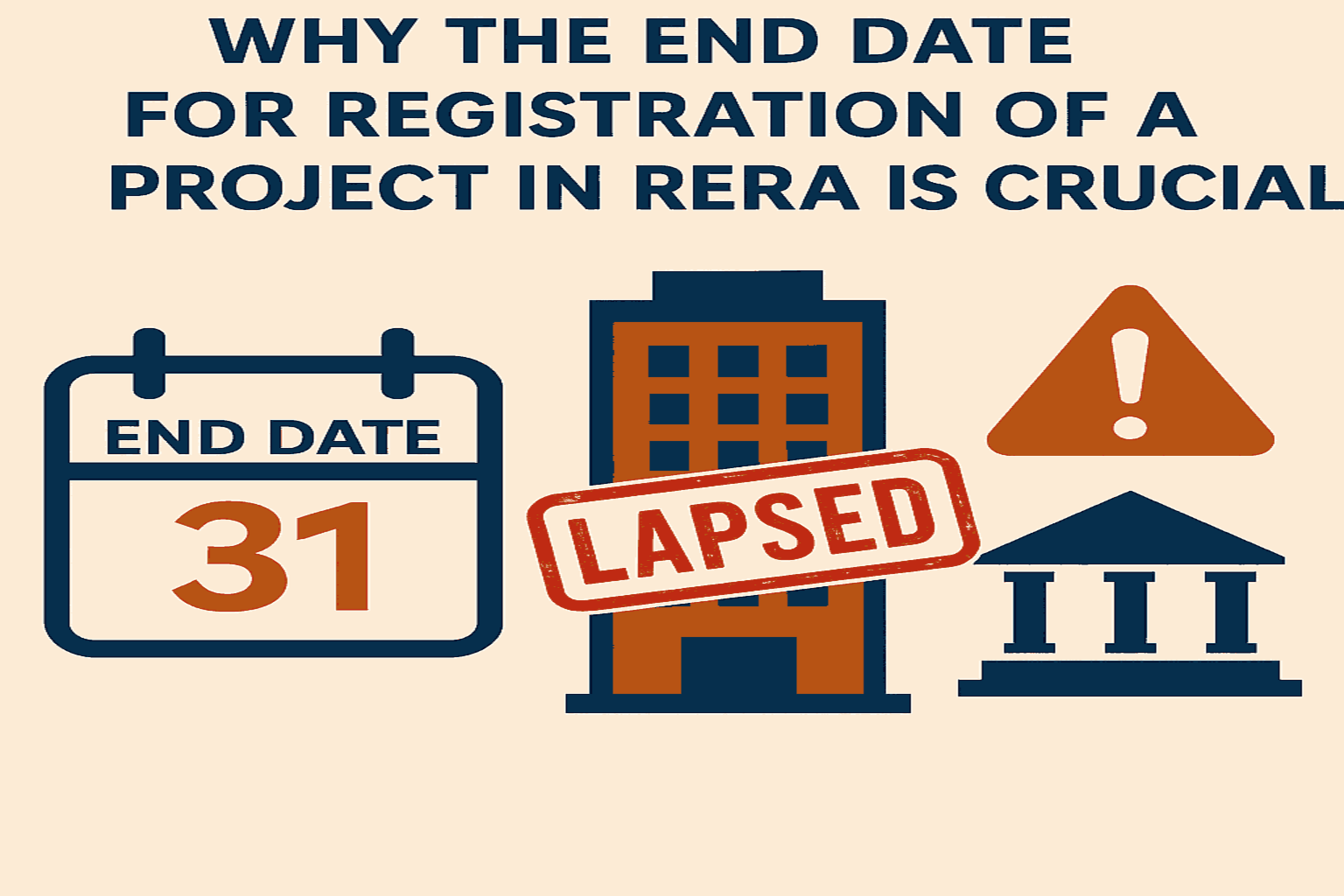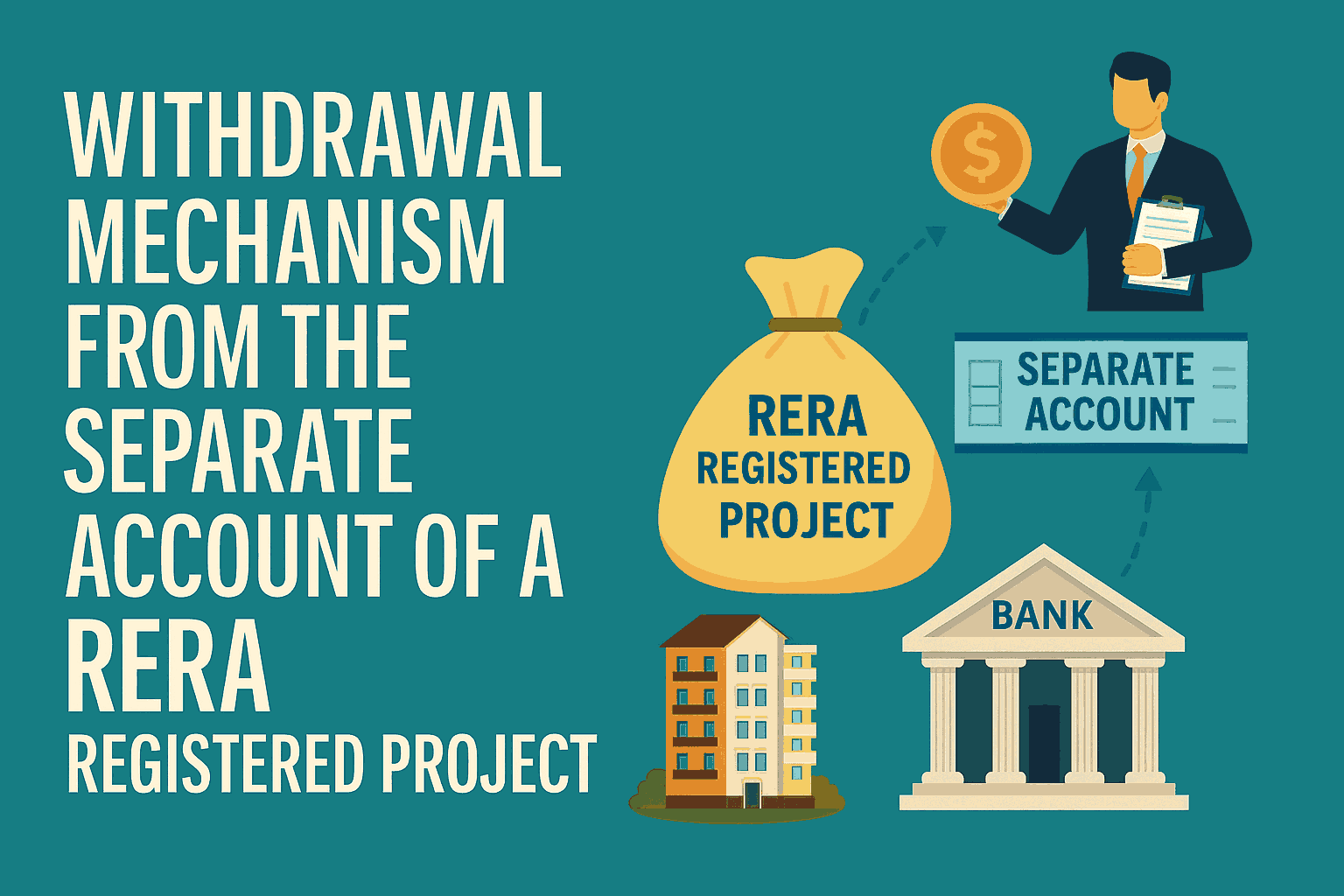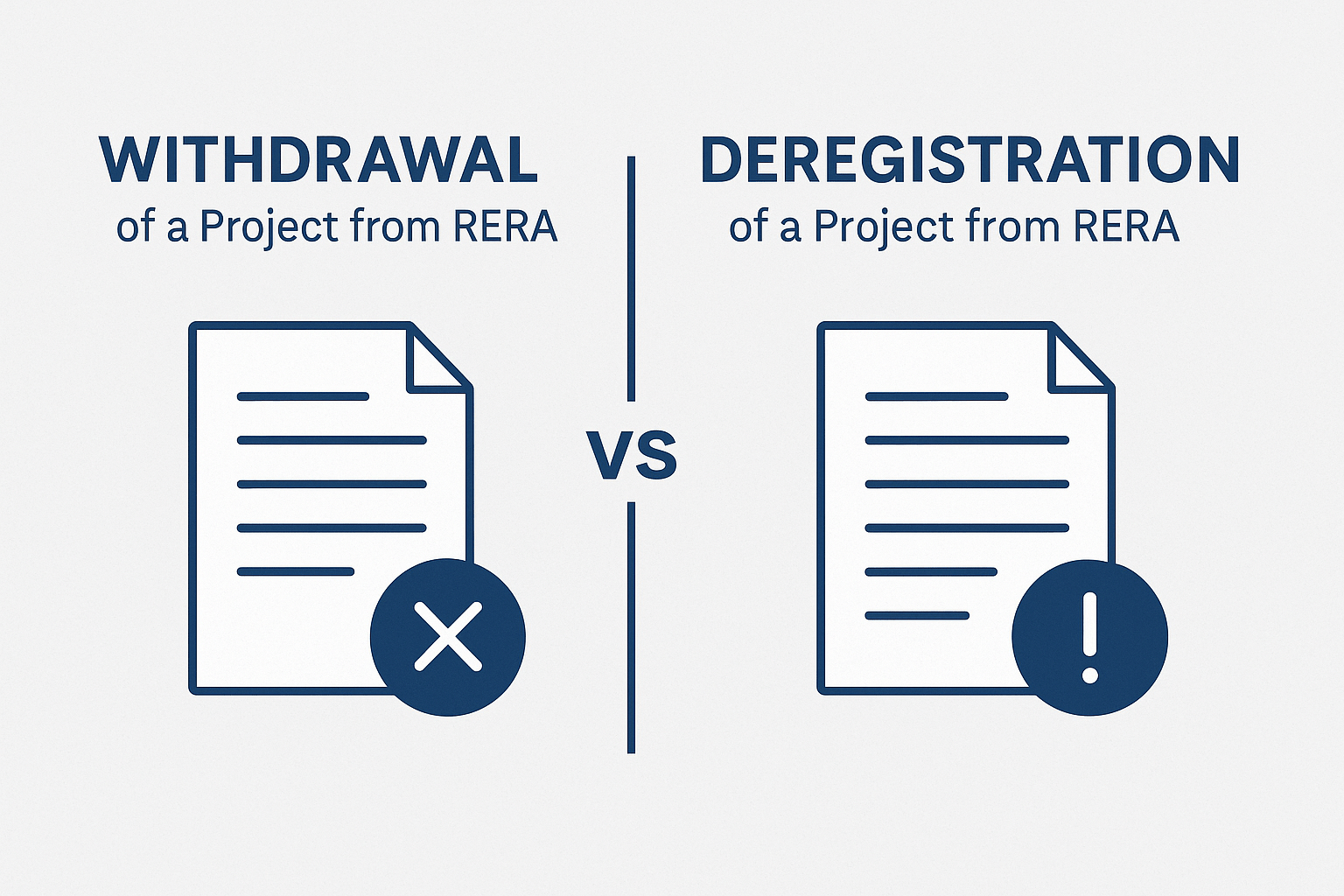
Under the Real Estate (Regulation and Development) Act, 2016 (RERA), the end date for a project’s registration plays a significant role in ensuring that developers adhere to the promised timelines for project completion. This date marks the final deadline for the developer to complete the project and hand over possession to the buyers. Missing this date has far-reaching implications, not just for developers but also for homebuyers, investors, and even the banking sector. In this blog, we explore the importance of the end date for registration, the consequences of missing it, and the process and costs associated with seeking an extension.
Key Takeaways:
What is the End Date for Registration?
The end date is the deadline by which a developer must complete the project, and possession must be handed over to the buyers, as per the terms of the registered agreement under RERA.
It is an integral part of the project registration process, outlined at the time of registration and approved by RERA.
What Happens After the End Date?
Once the end date passes without completion, the project is considered "lapsed" under RERA. This means the developer loses the project’s active registration status with RERA, and the project no longer enjoys the protection and guarantees that come with being RERA-registered.
A lapsed project faces multiple challenges, including legal repercussions and the potential loss of credibility in the market. Moreover, the developer may no longer advertise the project, as RERA regulations prohibit promoting an unregistered or lapsed project.
The Process for Project Extension:
Developers can request an extension from RERA, but it’s essential to meet specific criteria and provide valid reasons for the delay. The extension is not automatic and requires the submission of relevant documentation that justifies why the project was unable to meet its deadline.
The developer must apply for the extension well before the original end date, providing a revised project timeline, updates on the work completed, and reasons for the delay.
Time Limit for Extensions (Section 6 of RERA):
According to Section 6 of the RERA Act, the extension granted for project completion cannot exceed one year. This stipulation ensures that developers remain on track to complete the project within a reasonable timeframe, preventing indefinite delays.
Extensions come with associated costs, and the developer is required to pay the prescribed fees for extending the timeline.
Implications for a Lapsed Project:
· Loss of Advertising Rights: Once a project lapses, the developer loses the right to advertise it as RERA-compliant. This can significantly impact the sales process, as homebuyers and investors often rely on RERA registration as a guarantee of the project’s legitimacy and timely delivery.
· Legal Consequences: Homebuyers who have already invested in the project may pursue legal action against the developer for non-compliance, further complicating the situation.
· Investor Confidence: A lapsed project can severely affect investor confidence, which can, in turn, impact future project funding and approvals.
· Impact on Banking and Financing: If a project’s registration lapses, it may also impact the developer’s ability to secure financing from banks or other financial institutions. Lenders rely on active RERA registration as part of the risk assessment process for project funding. Without registration, financial institutions may withdraw support or refuse further disbursements, leading to delays or halting of the project.
Why This Date Matters to Buyers and Investors:
For homebuyers, the end date is crucial, as it ensures that possession will be handed over on time, and that the developer will meet their obligations as per the agreement.
Investors rely on developers meeting deadlines to assess the feasibility and profitability of their investments. A missed end date undermines confidence in the developer's ability to deliver, affecting future investments.
Conclusion:
The end date for a project’s registration under RERA is not just a formality; it’s a critical aspect that ensures developers remain accountable to buyers, investors, and financial institutions. A missed deadline, resulting in a lapsed project, can have severe implications, including the inability to advertise the project, legal consequences, and the impact on banking and financing. Developers must ensure that they meet these deadlines or follow the proper process for an extension to avoid these consequences
Author
CA Akash Jaiswal
Chief Advisor, Apex RERA Professionals
Contact



Apex RERA Professionals is owned by Realtyedge Professionals LLP.